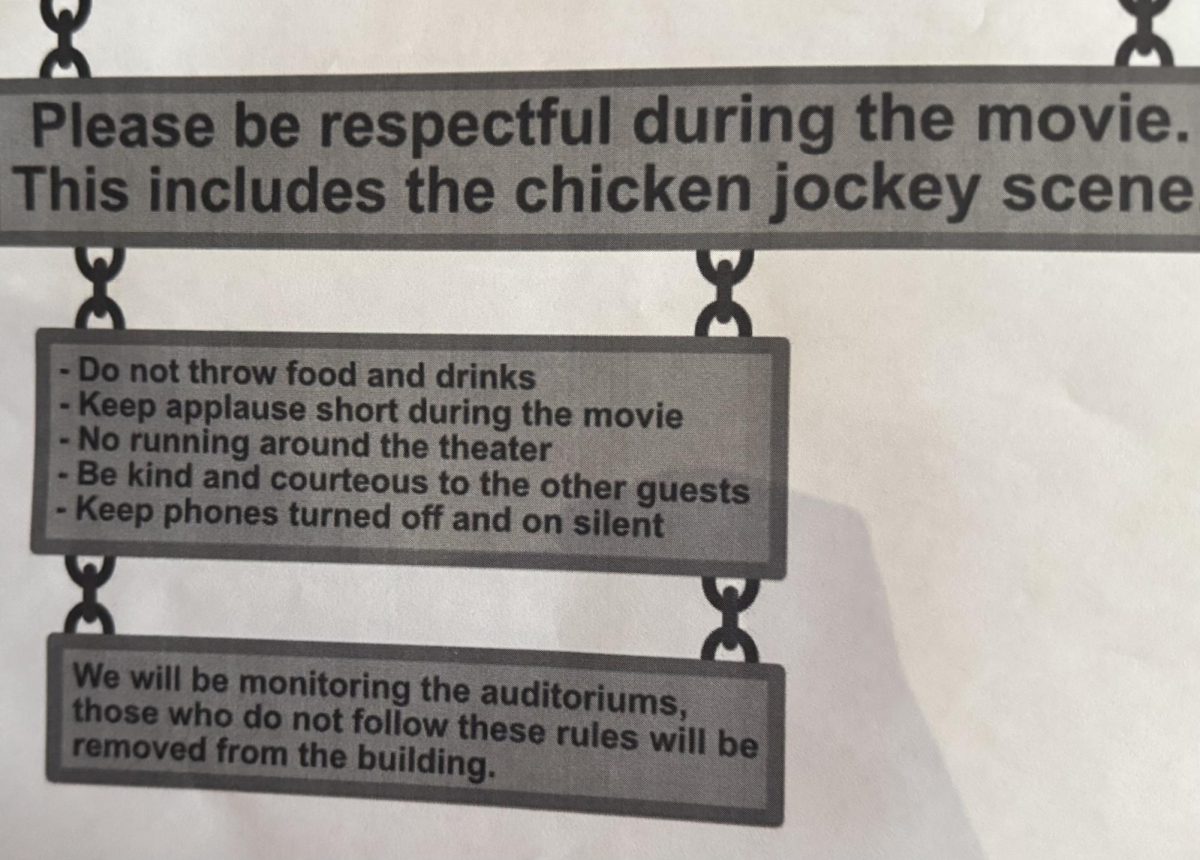“I had no idea.” That line from Zoe Leonard-Monrad’s piece about National Eating Disorder Awareness Week struck a chord with me. I had no idea. It wasn’t until last fall that I could even say I’d had an eating disorder.
In high school, I stopped eating and started exercising. A lot. I lost more than 15 percent of my body weight. I obsessed over food: when I could eat, when I couldn’t eat. I constantly monitored how many calories I would burn if I ran ten miles and if that was enough to permit myself to eat a granola bar before soccer practice. Something was wrong. But all through high school and my first three years at Mac, it became normal for me to count calories, to exercise all the time, to panic when I thought I’d eaten too much or run too little.
I want to tell my story for a couple reasons. First, because I had no idea what I was doing to myself, had no idea my weight obsession was really a problem. My friends had — and have — no idea. Most people have no idea what was going on inside my head every time I went into Café Mac. I hope that sharing this will continue to encourage conversations about mental illness, and increase awareness of an issue that so often goes unnoticed or ignored.
And second, I support Ross Boehme’s call for the athletics department to remove height and weight statistics from the website. I further want to urge the athletics department to take a more responsible view of athletes with eating disorders. I don’t want to exclude non-athletes with eating disorders, but this is an issue I have long wanted to address.
As a soccer player, I was never considered a “high risk” athlete. Runners, gymnasts, figure skaters tend to be identified as the female athletes who develop eating disorders. Soccer players are “supposed” to be strong, confident, muscular girls. It is not okay for the Macalester soccer program, nor the athletic department as a whole, to support that view.
My first year of high school soccer was the beginning of my eating disorder. I needed to be in better shape, faster, thinner. I came to my first preseason at Macalester feeling healthier. I’d put on the weight I’d lost. I was eating more and better. But when I learned we had to weigh in and out of every preseason practice, I was thrown into a panic. See, in high school I would weigh myself many times each day, feeling successful when my weight went down, frantic when it went up. I’d since stopped, but the thought of weighing myself four times each day brought back those memories. Then there was the fact that others could see my weight. I didn’t want to know how much I weighed, and I definitely didn’t want anyone else to know either.
Weighing in and out of preseason practices is a means of maintaining hydration for athletes who lose a lot of water during hot August practices. The trainers and coaches require the weigh-ins in order for athletes to practice each day. However, athletes don’t always receive instruction on how to use the weight information to rehydrate, and there are other means of checking hydration. Rather than helping me rehydrate, weigh-ins created a new fear of my weight, bringing back the panic I’d buried. For an athletic program, it creates a culture where weight is monitored, and even with good intentions, constant weight consciousness can lead to unintended consequences.
From what I’ve heard, Women’s Cross Country Head Coach Betsy Emerson is very conscious of potential weight concerns with runners. She works to create an environment of positive body image, in part by avoiding constant weight checks and by having intentional conversations about weight issues. I urge the women’s soccer program—and other sports teams—to do the same.
You have no idea. You had no idea that I, your female soccer player, battled an eating disorder beginning at the age of 14. You have no idea who else might be in those shoes. Eating disorders are not limited to runners, to women or to athletes. Mental illness, including eating disorders, is difficult to talk about and uncomfortable to address. It took me years to be able to speak openly about it. Until that changes, we will have no idea. And that is why I’m asking for a change.







Carol Graham • Sep 12, 2019 at 6:48 am
Wow! this cartoon type YouTube video I have seen when I was in primary level and at the moment I am in university and watching that over again at this place.
Stephanie Avery • Sep 11, 2019 at 12:04 am
Hi there, thanks for all the users, I will add many more videos in upcoming days, admin
Yvonne Reid • Sep 6, 2019 at 5:03 am
These all YouTube gaming video tutorials are truly in nice quality, I watched out all these along with my colleagues.